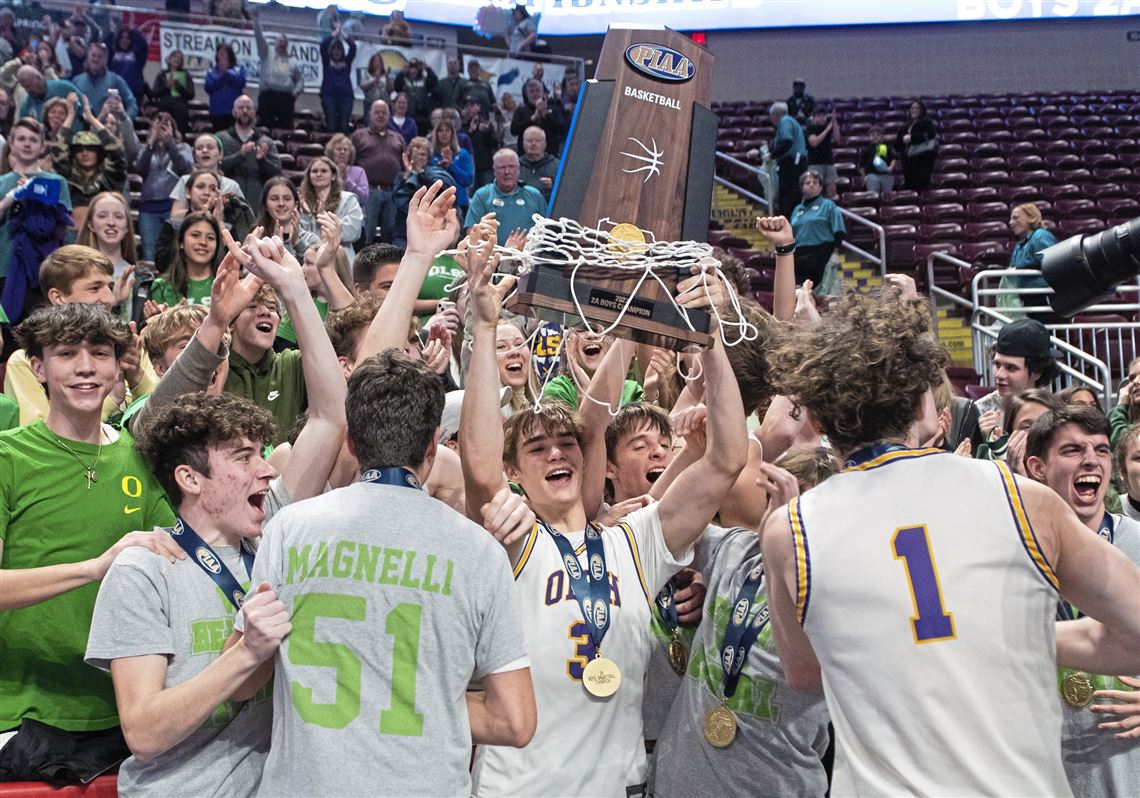
OLSH finishes perfect season, ties state record for longest win streak with victory in PIAA 2A championship
OLSH finished 28-0 and ran winning streak to 68 games.
"OLSH" is the initials of Our Lady of the Most Sacred Heart high school in Coraopolis, PA (I guess OLMSH didn't sound right).
The OLSH basketball team just finished its second consecutive perfect season by winning the Pennsylvania Class 2A championship for the second time. The news reports of other state class championships were also peppered with the names of Catholic parochial schools, many from the Philadelphia area.
Coaches and players from public schools in Pennsylvania have been complaining for years about Catholic schools recruiting (stealing) top players from the public school system. The Catholic schools have no geographical limits as the public schools do, and they can offer the student-athletes a top quality education along with a sports experience that promises to showcase their talent in a way that simply wouldn't happen if they remained in their non-competitive neighborhood public school. The Catholic schools don't make an issue of the professed religion of incoming student-athletes - hell, they could be Rastafarians and the schools and coaches wouldn't care - and they offer partial and full scholarships to promising student-athletes, so that the cost of taking this road is nothing or next to nothing.
To be candid, most of the affected players are Black, and opting out of a dreadful urban, failing high school. So one might even suppose that going to a predominantly "white" high school where racism is simply not an issue might be an unspoken benefit as well.
There is absolutely no downside for a promising athlete, except that s/he will have to put up with a more structured educational experience and might have to do a bit more homework than at their neighborhood school, but the advantages are considerable, and not the least of them is that they will likely be much more attractive to colleges with the enhanced academics to go along with the high profile sports career.
But is this whole structure - public and parochial schools juxtaposed as they are - "fair"?
The first question is, Fair to whom? Imagine a public school that could be a dominant force in the local basketball scene, but loses its two best players to the local Catholic HS and ends up being mediocre. Or any school that could be competitive in its section but loses a top player or two and is no longer competitive. How much of a burden is that to the players, students, and coaches? Do they have a "right" to be as successful, sports-wise, as they would be in the absence of the local parochial schools?
Public school coaches organizations constantly lobby the Powers that Be to force private and parochial schools into their own sections, at least until the end-of-season playoffs, with the expectation that they would not "lose" their top players under that scenario. This is unlikely to pass, but probably won't because it only affects schools in Philadelphia, Pittsburgh, Erie, and Harrisburg. The rest of the state couldn't care less.
The PLAYERS who take advantage of this scenario definitely benefit by going to the Parochial schools. They are going to have a better academic experience and have a better chance at getting a college scholarship than they would if they stayed in their own neighborhood school, which, to be candid, is probably urban, mainly Black, and academically inferior.
If you were Emperor of High School athletics in your state, would you do anything to change this system?

